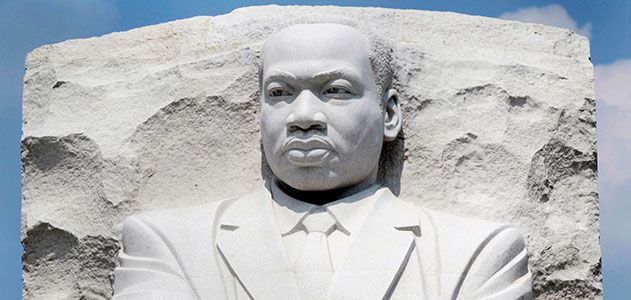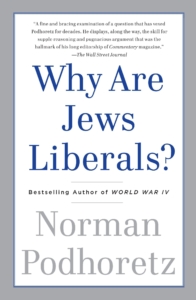Murder and Misogyny: Liberalism is a Power-Cult of Hatred, Envy, Virtue Signaling, and Lies
It was one of the most appalling war-crimes ever committed, but it’s oddly little-known today. In 1940, after the Soviet Union had seized the half of Poland assigned to it by the German-Soviet Pact, Stalin did something worthy of his possible ancestor, Genghis Khan. About 22,000 members of Poland’s military and civil elite, the nucleus of a possible future resistance, were rounded up and summarily executed with bullets to the back of the head.
Woe to the vanquished
Many of the executed men were buried in shallow graves in the Katyn Forest, now in western Russia. And so the atrocity is called the Katyn Massacre. After Germany attacked the Soviet Union in 1941, its forces discovered the mass graves and it accused the communists of a gigantic war-crime. But the Soviet Union threw the accusation back and the Katyn Massacre was officially blamed on the Germans at Nuremberg.
Today the truth is fully established but not widely circulated. For example, most spell-checkers don’t even recognize the name Katyn, although they’re fine with names like Auschwitz, Treblinka and Buchenwald. But of course, there’s one country where the Katyn Massacre is known to everyone: Poland itself. Vae victis! — “Woe to the vanquished!” — is merely a phrase in England. In Poland, it’s a summary of recent and agonizing history.
Poles know very well what can happen to a nation that falls under the control of outsiders. Horrors like the Katyn Massacre can happen. Such knowledge must be part of why Poland has refused to allow mass immigration from the Third World: it “accepts vanishingly small numbers of migrants [and] has some of the most pungent views on immigration on the continent.”
To the Guardian, this is “baffling,” but then liberals believe in narcissism and virtue-signalling rather than in realism and studying the lessons of history. Immigration is invasion by another name and although final conquest may take longer, the same truth will apply in the end: Vae victis! Hungary, Slovakia and the Czech Republic also know the full meaning of the phrase and they too are resisting mass immigration by Muslims and other non-Whites. Hungary in particular knows how Muslims behave on European soil, because it fought off the Ottomans and saw many of its people slaughtered or carried into slavery.
Ancient rules of conquest
England’s history, by contrast, contains nothing like the Katyn Massacre or the Ottoman invasions. The last conquest of England was a thousand years ago, when Duke William of Normandy arrived with his army in 1066. Furthermore, the Norman Conquest was carried out by a closely related racial group who practised exactly the same religion as the English. It was not like the conquest of Catholic Poland by atheist, anti-Catholic communists who were disproportionately drawn from non-Slavic minorities like Jews, Latvians and Georgians — the sadistic rapist Lavrentiy Beria, the NKVD chief who oversaw the Katyn Massacre, was Georgian like Stalin. Duke William saw himself as the rightful heir to the English throne and did not want to replace England’s culture or wipe out its religion. The communists who conquered Poland did want to do all that. That’s why they committed the Katyn Massacre, following a version of the ancient rule of conquest set forth in the Hebrew Bible: “And they warred against the Midianites, as the LORD commanded Moses; and they slew all the males.” (Numbers 31:7)
Another ancient rule of conquest comes next in the Bible: “All the women children, that have not known a man by lying with him, keep alive for yourselves.” (Numbers 31:18) Conquered men were killed and conquered women became the sexual property of the victors. Those were the ancient rules, obvious both in the Bible and in the genetic analysis of prehistoric DNA. The Soviet Union applied the first rule in Poland at the beginning of the war and the second rule in Germany at the war’s end. Like the Katyn Massacre in 1940, the Rape of Berlin in 1945 is nowhere near as well-known as it should be. But the mass rapes committed in Berlin and elsewhere by Soviet troops were not isolated or anomalous. Those troops raped their way across Europe and didn’t spare their own female comrades or Soviet women who had been imprisoned by the Nazis.
Portents for worse horrors
Such war-crimes didn’t happen in England, where enemy bombs fell but no enemy boots trod. Again, the English never learnt the true meaning of Vae victis! That’s why so few English people today fully understand the rape scandals in Rotherham, Huddersfield, Newcastle, Oxford, Telford and many other English towns and cities. Muslim men are behaving like conquerors and taking native women and girls as their sexual property. Rotherham, Huddersfield, Newcastle and the rest are not merely present horrors, but also portents for an even more horrible future. Muslim men clearly understand that immigration is invasion. They also understand that they have collaborators in local councils and the police: “Karrar was brazen in his exploitation of Girl D and acted in the belief that the authorities would never challenge him — something that for years proved to be true.”
Mohammed Karrar was one of the Muslim rape-gang that raped, tortured and prostituted under-aged White girls in the university city of Oxford, where so many of England’s liberal elite complete their education before entering politics and the media. Some of those liberals are now working on the British government’s official anti-hate website. Did any of them attend Oxford during the “years” when Mohammed Karrar and his buddies were left free to rape, torture and prostitute White girls? If so, this dramatic image used at the site in 2019 becomes even more ironic:

Evil White Male vs Innocent Muslim Woman , on official British Government website. Notice: A hate crime is any criminal offence which is perceived by the victim, or anybody else, to be motivated by hostility or prejudice towards someone’s race, religion, sexual orientation, transgender identity, or disability. So a hate crime is a perception by an alleged victim or, say, an activist. It does not necessarily need to have any basis in a reasonable construction of reality. One can easily see how such alleged victims and activists may perceive things in an unreasonable or hostile manner.
The image has a simple, lying message: White men are a threat to women, minorities and especially women-from-minorities. White men are racists, misogynists, Islamophobes, xenophobes, homophobes, and haters of every other variety going. Except one variety. There is a hate that has no official name, even though it’s practised throughout the West and harms far more people than all the rest put together. There’s no name for hatred of Whites and of White men in particular. But that hatred is plainly at work in the image at the British government’s official anti-hate website. The government is using the taxes of Whites to broadcast a message of hate against Whites: “Look at the poor Muslim woman being abused by the evil white male! We must protect such women with tough laws against White male hate!”
But what is the origin of this anti-White pathology? Well, if you look at the bottom of the government’s “Hate Crime” page, you’ll find these two anti-hate groups standing proudly together:
Tell MAMA UK: A national hate crime support and monitoring service for victims of anti-Muslim hatred.
Community Security Trust: Deals with antisemitic incidents and provides victim support.

Muslims and Jews united against Whites
Tell MAMA might come first in the list, but it’s not pulling the strings of the anti-White propaganda campaign. The Jewish Community Security Trust (CST) is a veteran at the anti-White game, having worked at the highest levels of power for decades. Labour governments have replaced the Tories and Tory governments have replaced Labour, but the song has stayed the same: “Whites are evil oppressors. Minorities are innocent victims. Crush hate speech!”
Jews and Muslims want to destroy free speech
The Jewish anti-White activist Dr Richard Stone, High Priest in the martyr-cult of Stephen Lawrence, has described Muslims and Jews in Britain as “natural allies.” By this, he means that Muslims should join Jews in attacking free speech and demonizing Britain’s White and historically Christian majority. When free-speech warriors like Mark Steyn, Douglas Murray and Rod Liddle criticize the “Islamophobia” industry, they never mention that Jews have played a central role there. Jews supply the industry with the legal expertise and propaganda skills lacked by low-IQ Muslims. And Jews are proud of their role in helping Muslims attack free speech and demonize Whites, as you can see from this story in the Jewish Chronicle back in 2014:
Former CST boss will help Muslim group battle Islamophobia
British Jewry’s leading communal security expert has explained why he felt obliged to help a Muslim group tackle Islamophobia. Richard Benson, who retired as chief executive of the Community Security Trust last year after 12 years at the helm, was appointed co-chair of the Tell Mama group this week. Tell Mama — the Mama stands for “measuring anti-Muslim attacks” — was set up to help British Muslims report discrimination and monitor incidents in a similar way to the CST’s recording of antisemitism. CST has worked closely with the group.
Mr Benson said Fiyaz Mughal, the anti-extremist campaigner who helped set up the group, had approached him to help take Tell Mama “to the next level, to have more success and ensure it has a future”. “They wanted professional support and that’s why I considered it,” said Mr Benson. “I wanted to be a co-chair with someone from the Muslim community and that’s being finalised now. This won’t be a Muslim organisation led by someone from the Jewish community. My role is to take the expertise I’ve got from CST and give those tools to Tell Mama.”
Government officials are said to have voiced concern at Tell Mama’s data-gathering methods, but Mr Benson said such stumbling blocks were to be expected: “CST has been attacked with accusations of over-inflated figures for years. Part of my job will be to give Tell Mama the systems to help ensure it doesn’t happen with them.” …
A CST spokesman said: “Over the years CST has helped many different organisations as part of our commitment to work for the benefit of everybody, inside and outside the Jewish community. We already support Tell Mama’s efforts to tackle anti-Muslim hate crime and we are happy that Richard’s expertise will be put to such good use.” (Former CST boss will help Muslim group battle Islamophobia, The Jewish Chronicle, 10th April 2014 / 10th Nisan 5774)
When Richard Benson spoke of “stumbling blocks,” he meant that Tell MAMA were being dishonest in their “data-gathering methods.” Fortunately, the CST are experts in peddling dishonest data to the government and media, so they’ve trained Tell MAMA in how to do the same.
Three-in-one victims
Richard Benson also knows that emotive images are excellent ways to convey anti-White propaganda. That’s why the government website prominently displays a distressed Muslim woman in a headscarf being shouted at by hate-filled White male. Liberals love to virtue-signal about a victim like that because she combines three sacred groups: Muslims, non-Whites, and women. Taken together, these three groups are maximally different from the White men who supposedly oppress all of them. As a result, liberals can feel especially compassionate, caring, and morally superior.
But there is a strict condition on the use of three-in-one victims. The non-White women in headscarves must never be associated with crimes by the group that really does oppress and harm them. And so the following image will never be used to illustrate the theme of hate on a government website:

Janbaz Tarin and his two victims
The image shows an Afghan Muslim male called Janbaz Tarin and two Muslim women, his former wife Raneem Oudeh and her mother Khaola Saleem, whom he brutally murdered in August 2018. Raneem Oudeh had discovered that he had a wife and children back in Afghanistan, so she left their Islamic marriage. Tarin thereupon murdered her and her mother out of spite. The case was a particularly shocking example of what liberals would call toxic masculinity and femicidal male entitlement. But Raneem Oudeh and Khaola Saleem will never become part of a liberal martyr-cult like the one that surrounds the Black teenager Stephen Lawrence.
Another Afghan male, another double-murder
This is because liberalism is an ideology built on lies in pursuit of power. The murder of Stephen Lawrence is used to promote a lie: that White men are a huge and ever-present threat to the lives and well-being of non-Whites. But the murders of Raneem Oudeh and Khaola Saleem reveal a truth: that the greatest oppressors of non-Whites are in fact other non-Whites. Therefore, their murders are useless to anti-White liberalism.

Ahmad Otak and his two victims
So are the murders of Kimberley Frank and Samantha Sykes in 2017, although these girls too were the victims of a viciously entitled male steeped in toxic masculinity. Remarkably, this male was also an Afghan Muslim, an “asylum-seeker” called Ahmad Otak who lied about his age in order to gain the benefits of being an unaccompanied minor. A White girl called Elisa Frank foolishly became his girlfriend, then left him because of his violent and domineering behaviour. Otak thereupon punished her by murdering her sister: “Afghan national Ahmad Otak laughed and spat on 17-year-old Kimberley Frank’s body after stabbing her 15 times at her home in Yorkshire while her sister Elisa watched helplessly.” But that wasn’t enough for Otak and his toxic masculinity: “He then tied his ex-partner up with electrical flex and lured her friend Samantha Sykes, 18, to Kimberley’s flat in Wakefield, where he stabbed the teenager repeatedly before slitting her throat.”
Kidnap, rape and more throat-slitting
There is no liberal martyr-cult for Kimberley Frank and Samantha Sykes, despite the horrific way in which they died at the hands of a patriarchal monster. Why so? It’s simple. They were victims of a non-White Muslim. Therefore, their murders can’t be used to promote hatred against White men. Liberals do not genuinely care about the lives and well-being of women: they care about winning and expanding their own power. That’s why they have forgotten the horrific double-murders described above. They’ve also forgotten the horrific murder described below, which narrowly failed to be another double-feature:
Freezer body murder: Uncle jailed for Celine Dookhran rape and killing
An uncle has been jailed for life for kidnapping, raping and slitting the throat of his niece before putting her body in a deep freezer. Mujahid Arshid, 33, was found guilty of murdering Celine Dookhran, 20, and the attempted murder of a second woman.
Arshid, who will serve at least 40 years in prison, snatched the women in July before taking them to a house in Kingston, south west London. … Arshid, of Homefield Gardens, Mitcham, has also been convicted of sexual assault charges against the second woman between 2008 and 2010. …
The surviving victim took to the witness box to face Arshid and read her own victim impact statement. She said “flashbacks and nightmares prevent me from moving on” and physical scarring from the attack is a “constant reminder of what Celine and I went through”. A statement from Ms Dookhran’s mother Iman was read out, in which she said her daughter “fell victim to pure evil” and that “coming to terms with her death is likely to be a lifelong assignment”. …
Prosecutor Crispin Aylett QC said Arshid was obsessed with his niece Ms Dookhran, who worked in a bank. Arshid spent weeks planning to abduct and kill both women in a plot that was as “bizarre as it is terrible”, Mr Aylett said. … At the empty six-bedroom house in Kingston, Arshid raped both women in turn before slashing Ms Dookhran’s throat in the bathroom.
The second woman, who cannot be identified, was badly injured but managed to escape after talking Arshid round. Speaking to police from her hospital bed, she described hearing screams and thuds as Arshid killed Ms Dookhran while she was tied to a chair downstairs. … “He molested Celine’s body while she was dead and then he molested me thinking I was dead. He’s such a psycho.” … (Freezer body murder: Uncle jailed for Celine Dookhran rape and killing, BBC News, 14 February 2018)

Mujahid Arshid and his victim Celine Dookhran
The story of Celine Dookhran’s murder is full of details that should horrify and anger liberals and impel them to create a martyr-cult in her memory. As in the double-murders by Janbaz Tarin and Ahmad Otak, there were big police failings that could have stopped the murderer well before he attacked two helpless women. And Mujahid Arshid had an accomplice who remains unidentified and still at large. Liberals have spent decades complaining about police failings in the Stephen Lawrence murder and demanding that all his killers be identified and brought to justice.
More kidnap, rape and murder
So why are liberals silent about very similar things in Celine Dookhran’s far worse and fully premeditated murder, which involved kidnap, rape and significantly more violence? Again it’s simple. Liberals are silent because Celine Dookhran’s murder can’t be used to promote hatred against White men. Instead, it once again reveals the truth: that the greatest oppressors of Muslim women are Muslim men. It also reveals that the greatest threats to all women in 21st-century Britain are non-White men. Although non-White men are still a minority here, they’re committing femicide — the murder of women — at disproportionate rates and with the worst brutality and sadism. Celine Dookhran’s murder is not unique in modern Britain. As I described in “Black Saints, White Demons,” five Blacks and an Albanian “asylum-seeker” kidnapped, tortured and raped two White girls in 2005, before stabbing one of them to death and trying to kill the other with a bullet in the head.
The girl who died, sixteen-year-old Mary-Ann Leneghan, is long forgotten by liberals, because her death can’t be used to promote liberal lies. Instead, it reveals the truth: that the worst abusers and oppressors of women are non-White men. That truth cannot be used to win power for liberals, therefore they deny it and pretend that White men are the problem. The liberal message is simple: White men are evil and must be stripped of power and thrust to the bottom of society. As the Audacious Epigone has said at the Unz Review: “The days of white male Democrats rising to the top of the party are over. There are those like … Biden and Sanders who will be grandfathered in, but the door to national-level leadership is shut for new entrants.”
Sowing the seeds of atrocity
When liberals accuse their opponents of “hate,” they’re projecting their own psychology and motives onto those opponents. It is liberals who are the worst haters, because liberalism is a power-cult fuelled by hatred, envy and lies. Liberals are trying to destroy the White men who stand between them and their dreams of absolute power. But more and more White men understand that they are targeted for destruction. As they wake up, they are starting to fight back. The stakes are very high. We have never had anything like the Katyn Massacre in Britain because we have never had the conditions for it: occupation by hostile outsiders who despise our culture and want to subjugate us for ever.
But liberalism is creating precisely those conditions, not just by importing hostile outsiders and subsidizing their reproduction on British soil, but also by actively encouraging them to hate Whites and seek revenge on us. Indeed, liberals have sown the seeds of atrocity throughout the West and all the horrific crimes above have parallels elsewhere, from the Knoxville Horror committed by Blacks against a White couple in America to the rape and murder of the White girl Maria Ladenburger by yet another Afghan Muslim in Germany. These crimes are portents of what will come if Whites lose control of their own nations. Vae victis! — “Woe to the vanquished!” That’s why liberalism has to end and hostile outsiders have to return where they belong.
















